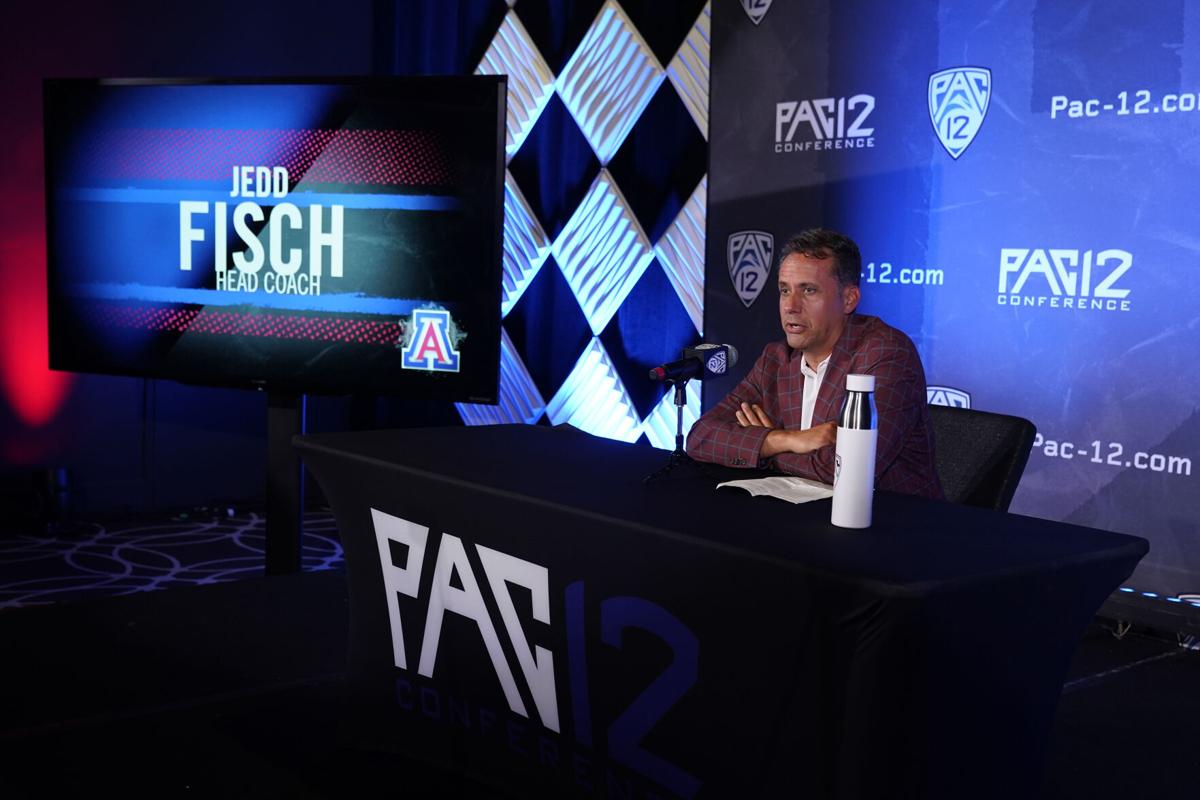Is it Jedd Lloyd? Or is it Tommy Fisch? Does anyone outside of Tucson — anyone at Oregon State or Stanford — know the difference between Arizona’s rookie head coaches?
This isn’t just starting over, it’s the total reconstruction of Arizona’s reputation and relevance.
No school in the modern history of the Pac-12 has started over the way Arizona is starting over in 2021-22. Dating to 1978, when Arizona and ASU were absorbed by the league, no school has entered an academic year with first-time head coaches in both football and men’s basketball.
The timing has rarely been worse because college football has never been more about what Arizona lacks: identity, recruiting power and earning potential.
The UA’s football season may as well be labeled Starting Over, Part I.
In a strange coincidence, the game’s historians may someday look back and say that 2021-22 was also the year college sports started over. It sure looks that way. The NCAA’s influence and power has diminished to a bare minimum. Athletes are eligible to be paid for their popularity. How much? Many will get six figures. Some already have.
Amateurism is no longer the guiding principle of college sports. You want to transfer to your rival school, or anywhere, without penalty? Please do. It’s free and easy. It’s about who can spend the most money and who can make the most money. It’s about ESPN deciding what school can draw the most eyeballs. It’s about domination, and, sadly, not as much about tradition and rivalries.
Oklahoma is seeking to part ways with Oklahoma State, a pairing that had created one of the most cherished rivalries in college sports. They call it “Bedlam.” Or did.
The middle class — the Arizonas, ASUs and Colorados — will likely suffer the consequences of the move away from the collegial model. Consequences? It will become more and more difficult to win.
On Tuesday, when Fisch — that’s Jedd Fisch — made his debut at the Pac-12’s annual football Media Day, he could not have been surprised that the Wildcats received the lowest total of votes, 12th overall, in the league’s annual media poll.
If he is cowed by the road ahead, it is hidden behind his cherry nature.
About eight hours before Fisch was introduced to the media, new Pac-12 commissioner George Kliavkoff, the anti-Larry Scott, gave a 15-minute preamble that could’ve been titled “Welcome To the 21st Century — Finally.”
Kliavkoff, who had never worked in college sports until July 1, said that the league’s strategy is an unprecedented commitment to producing football super powers to be part of the super-rich College Football Playoffs,
“We’re hyperfocused on greater success in football and men’s basketball,” said Kliavkoff. “That’s no secret.”
Kliavkoff mentioned the possibility of turning Pac-12 football into one, 12-team heavyweight division, breaking up the more competitively friendly six-team divisions. If you are an Arizona fan, vote no. Twice.
In a 12-team football division, Arizona could be eternally buried. It’s enough to battle USC and UCLA in the Pac-12 south every season, imagine if Oregon, Stanford and Washington were thrown into the same pile.
If that realignment comes to pass, Arizona might not get to the Rose Bowl for another 42 years.
ASU coach Herm Edwards spoke Tuesday about the game’s fast-changing landscape. “It’s a new day in college football, and not just football, but all college sports,” Edwards said. “You’ve got to embrace it or you’ll get left behind.”
In its 42 years in the Pac-12, Arizona has truly challenged to be the league’s No. 1 football school about 2½ times per decade. The Wildcats have been among the league’s top two or three — legitimate Top 25 clubs — in 1983, 1986, 1992, 1993, 1994, 1998, 2010 and 2014.
That’s eight times in 42 years.
“We do not think expansion is required to compete and thrive,” Kliavkoff said. Truer words have not been spoken. The last thing Arizona needs is for the Pac-10 and Big Ten to form a collaborative football super conference in a few years, a money grab that would probably sentence the Washington States and Minnesotas to bottom-feeding forever.
I mean, the UA still has to spend $150 million or more for a lengthy rebuild of the west side of Arizona Stadium to avoid being known as the Pac-12 school with the worst football plant.
In a game of change, Arizona has been slow to change, a tardy approach that began 20 years ago.
“The amateur model is not what it used to be,” Utah coach Kyle Whittingham said Tuesday. “I think we’re in for a huge change in college football. I think it’s gravitating more to minor-league football.”
It’s up to Fisch to see that Arizona gravitates to relevance ASAP.
In seven months, Fisch has infused a UA football program that has been anonymous for years into one with a personality. He speaks often about joy. “We have an incredible situation,’’ he said Tuesday. “I’m thrilled where our program is going.”
If nothing else, Fisch already leads the league in smiling.
When he took his seat at the podium for a 30-minute media Q&A session Tuesday in Hollywood, the 11th of day’s 12 speakers, Fisch delivered a line worthy of the Hollywood: “I guess I’m second to last, which is what you normally rank me anyway.”
Stick around. This may be some fun.





